Debt can be a significant source of stress and anxiety for many people, and it can be challenging to determine the best course of action when facing overwhelming debt. Two popular debt relief options are debt management plans (DMPs) and debt settlement plans. Both plans can be useful for those struggling with debt, but they operate in different ways and may be better suited for different situations. In this article, we will explore why choosing a debt management plan instead of a debt settlement plan may be the best option for some people.
What is a Debt Management Plan?
A debt management plan is a structured repayment plan designed to help people pay off their debts over time. DMPs are typically offered by credit counseling agencies, which negotiate with creditors on behalf of the consumer to create a manageable payment plan. The borrower makes a single monthly payment to the credit counseling agency, which then distributes the funds to the creditors according to the agreed-upon plan.
Debt management plans typically have lower interest rates than the original debts, which can help reduce the overall amount owed. Additionally, DMPs can provide relief from collection calls and can help consumers avoid negative marks on their credit reports.
What is a Debt Settlement Plan?
A debt settlement plan, also known as debt negotiation or debt relief, involves negotiating with creditors to settle a debt for less than the full amount owed. The consumer typically stops making payments to the creditor and instead makes payments into a settlement account. The consumer accounts go into default. Once enough funds have accumulated in the account, the settlement company negotiates with the creditor to settle the debt for less than the full amount owed. The consumer then uses the funds in the settlement account to pay the settled amount.
It is important to approach debt settlement companies with caution and do your research before working with one. While there are reputable debt settlement companies out there, there are also many that engage in deceptive or unethical practices.
One of the main risks associated with debt settlement companies is that they may charge high fees for their services, often taking a percentage of the total amount of debt that they are settling. These fees can be significant, and it is important to carefully review the terms of any agreement before signing on with a debt settlement company.
Another risk associated with debt settlement companies is that they may not be able to settle all your debts, leaving you with some outstanding balances and potentially facing legal action from creditors. Additionally, some debt settlement companies may encourage you to stop making payments to your creditors, which can lead to late fees, penalty interest rates, and damage to your credit score.
It is also worth noting that some debt settlement companies may be outright scams. These companies may make promises that they cannot keep or engage in fraudulent practices, such as misrepresenting the amount of debt that you owe or falsely claiming to be affiliated with the government.
Debt settlement plans can be appealing because they offer the potential for significant (reduction of debt). However, debt settlement plans can also be risky and can result in negative consequences, such as damage to credit scores and potential legal action from creditors.
Why Choose a Debt Management Plan Instead of a Debt Settlement Plan?
While debt settlement plans can offer the potential for significant (reduction of debt), they also come with significant risks. Choosing a debt management plan instead of a debt settlement plan may be the best option for those who want to reduce their debt without taking on unnecessary risks. Here are some reasons why a debt management plan may be a better option than a debt settlement plan:
- Lower Risk
Debt management plans are a lower-risk option than debt settlement plans. With a DMP, the consumer continues to make payments to creditors, albeit at a reduced interest rate. This can help protect the consumer’s credit score and avoid the negative consequences that can come with missed payments or defaulting on debt.
In contrast, debt settlement plans can be risky because the consumer typically stops making payments to creditors. This can result in missed or late payments, which can damage credit scores and lead to collection calls and potential legal action from creditors.
- Structured Repayment Plan
Debt management plans offer a structured repayment plan that can help consumers stay on track with their payments. With a DMP, the credit counseling agency has a relationship with creditors to create a manageable repayment plan that fits the consumer’s budget. The consumer then makes a single monthly payment to the credit counseling agency, which distributes the funds to creditors according to the plan.
In contrast, debt settlement plans do not offer a structured repayment plan. Instead, the consumer makes payments into a settlement account and waits for the settlement company to negotiate with creditors. This can result in uncertainty and a lack of control over the repayment process.
- Positive Impact on Credit Score
While both debt management plans and debt settlement plans can help reduce debt, debt management plans will have a more positive impact on credit scores. With a DMP, the consumer continues to make payments to creditors, albeit at a reduced interest rate. This can help protect the consumer.
Here at Debt Reduction Services, we have helped consumers since 1996. We have an A+ rating with the BBB. Most of all, we believe that the consumer will have the help they need.
About the Author
Eric has amassed extensive experience in the financial and credit counseling sector, dedicating numerous years to this industry. Presently, he serves as a certified credit counselor at Debt Reduction Services, leveraging his expertise to assist individuals in managing their debts effectively. Throughout his career, Eric has consistently exhibited his commitment to empowering consumers with the knowledge and tools necessary to navigate their financial challenges.











